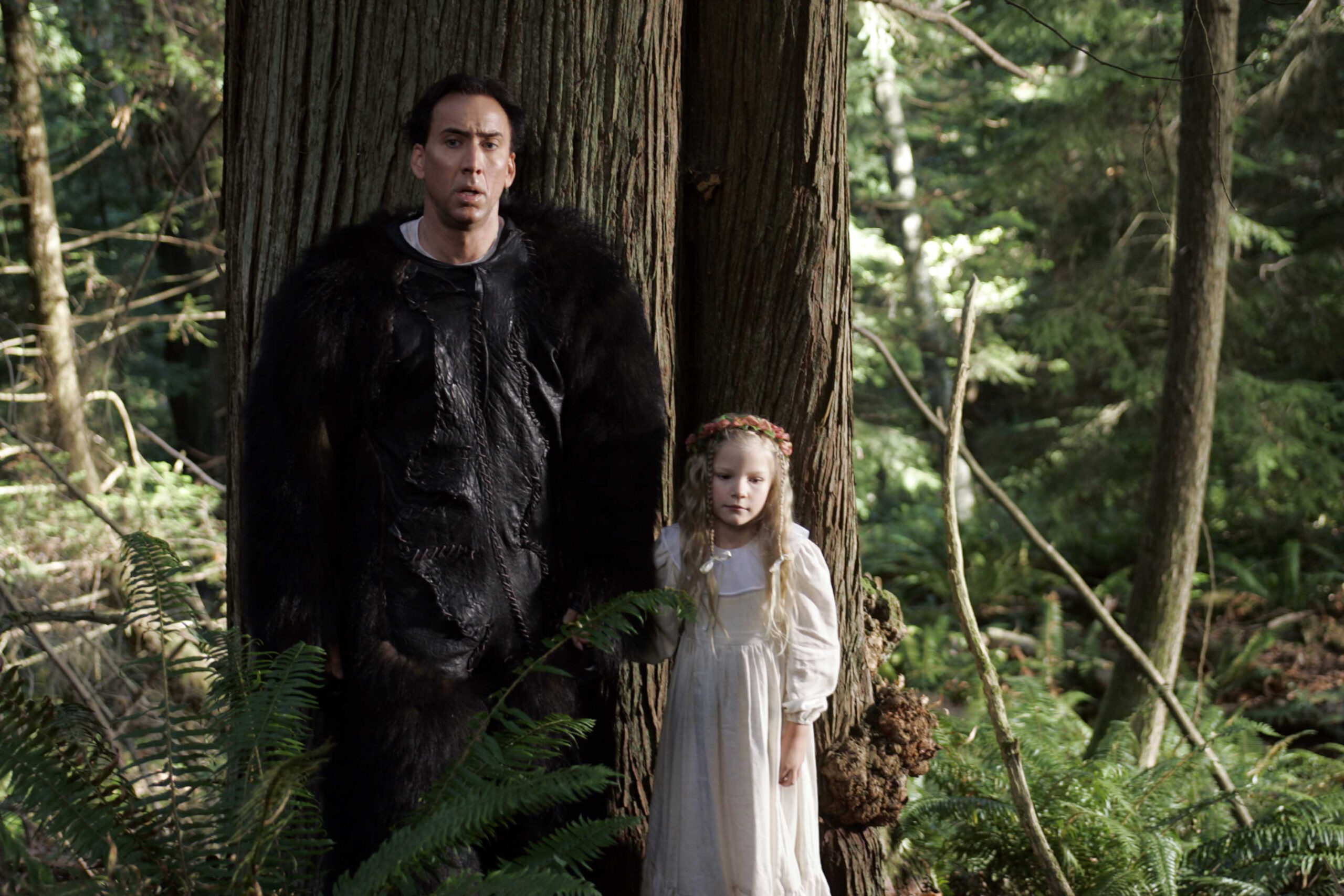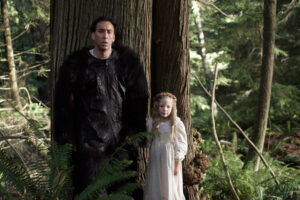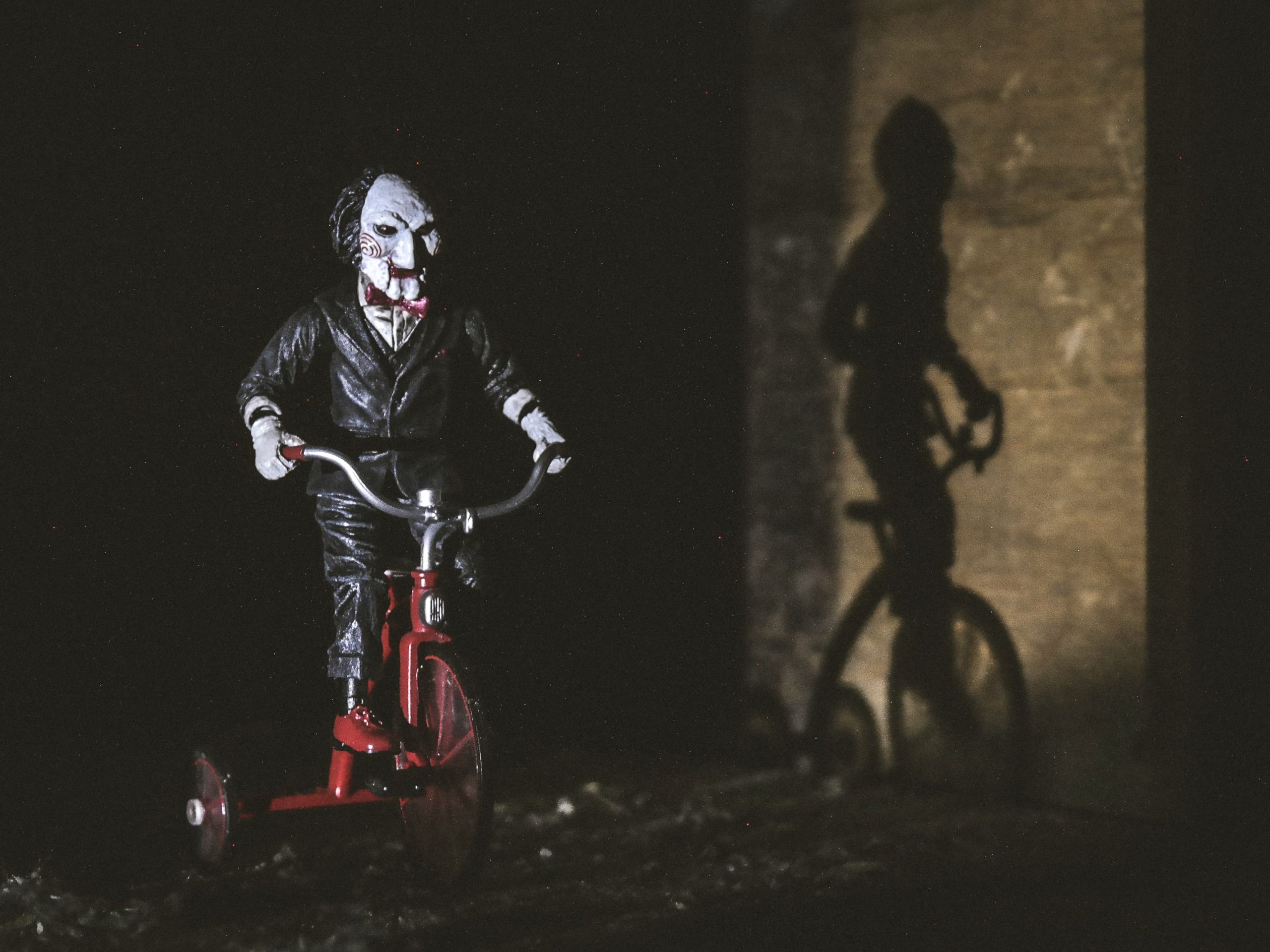Remakes are a risky business. Whenever one is announced, there will invariably be at least some detractors, who—maybe justifyingly—will claim it to be a shell of its source material, a way for major studios to make a quick buck without having to come up with a new idea. Of course, there are outliers, David Cronenberg’s The Fly being an example of a remake that exceeded its original in terms of both creativity and depth.
These films, however, prove that the detractors are more than sometimes right.
The Wicker Man (2006)
Even The Wicker Man star Nicolas Cage didn’t take this remake seriously, as evidenced by his careless acting. (Yes, this is the film that contains his infamous “not the bees” line that has since been memed into the ground.)
The 1973 version of The Wicker Man is perhaps the quintessential British horror film, a slow-burn journey into the most terrifying depths of religious oppression. Neil LaBute’s American remake, on the other hand, contains none of the original’s nuance.
Whereas the 1973 version provided the viewer with some insight into the psychological motivations of cult members, the message of LaBute’s film is essentially boiled down to the head-slappingly obvious “cults bad.”
As mentioned, Cage did not exactly bring his A-game to The Wicker Man. It is considered even by the actor’s fans to be a lackluster performance, motivated in part by his own knowledge that the film was “absurd.”
Charlie and the Chocolate Factory (2005)
A remake of the 1971 children’s classic Willy Wonka and the Chocolate Factory, Charlie and the Chocolate Factory took the once-lovable character of Willy Wonka—originally portrayed by Gene Wilder—and made him, well, creepy, with Johnny Depp’s interpretation of the eccentric candy entrepreneur being compared to a late era Michael Jackson.
Critics also felt that the film’s over-reliance on CGI effects was gaudy and took away from the charming simplicity of its source material.
All this being said, Charlie and the Chocolate Factory has garnered its share of defenders, with The Guardian’s Peter Bradshaw calling it “Tim Burton’s best film for years, miles better than the woeful Big Fish or Planet of the Apes.”
Godzilla (1998)
Japanese studio Toho had already produced a four decades-long string of Godzilla films when American distributor TriStar released its own version of the film in 1998. In defense of the film—and this is the only defense that will be given—it is admirable that its creators did not attempt to produce a carbon copy of the titular monster.
However, what they did create was more akin to a giant, yet sensitive iguana than the menacing radioactive dinosaur that is the true Godzilla. Unlike Toho’s Godzilla, the American version, dubbed as Zilla—Godzilla without the God—by fans, runs from bullets; instead of putting up a fight against the humans attacking her, she goes into hiding, with the mission of finding her being a huge part of the film’s plot.
Even with its bad dialogue (“That’s a lot of fish!”) and acting, Godzilla could have easily just been forgettable, yet forgivable schlock had it not used the Godzilla title.
Psycho (1998)
There’s no denying that Drugstore Cowboy director Gus Van Sant is an incredibly talented artist, contributing greatly to both film and music. However, his Psycho remake is better left forgotten.
Granted, it was not Van Sant’s intention to violate the original. Rather, he wanted to pay homage to a film that was one of the greatest influences to his own art. However, to critics and fans alike, doing such a similar remake just felt unnecessary.
See, Van Sant’s Psycho takes no creative liberties. It is a word-for-word, shot-for-shot remake of Alfred Hitchcock’s genre-defining classic. And even with no changes to the script or direction, the magic of the original was lost, this version lacking the freshness or suspense that was partly attributed to Anthony Perkins and Janet Leigh’s stellar performances.
Van Sant would later justify making the film, saying that doing so was a learning process for him:
“There’s a whole reason behind it… I think the process of doing it was the learning,” he said. “It wasn’t necessarily about the result. It wasn’t really about learning about Hitchcock, it was more that during the ‘90s the joke about the executives was that they would rather make a sequel than they would an original piece, because there was less risk. They would rather continue a story that’s already known in the public, and they were really searching for some way to do that. Now they’ve found out that comics is the way to do it… but back in the ‘90s they hadn’t found that yet.”
Planet of the Apes (2001)
It’s a shame that two of Tim Burton’s films are included on this list, as he is undeniably a brilliant director. However, his version of Planet of the Apes is not only a disgrace to the original—one of the greatest films of all time—but to filmmaking in general.
2001’s Planet of the Apes contains an overly-convoluted plot that does nothing to augment the overall message of the film: It is simply full of useless fluff. Factor in Mark Wahlberg’s one-dimensional acting and an overuse of CGI that makes Charlie and the Chocolate Factory’s effects look practical, and you’ve got yourself a forgettable film that Fox spent way too much money to produce ($100 million, in fact).
Are there any other worst movie remakes that you felt we missed? Let us know in the comments!






